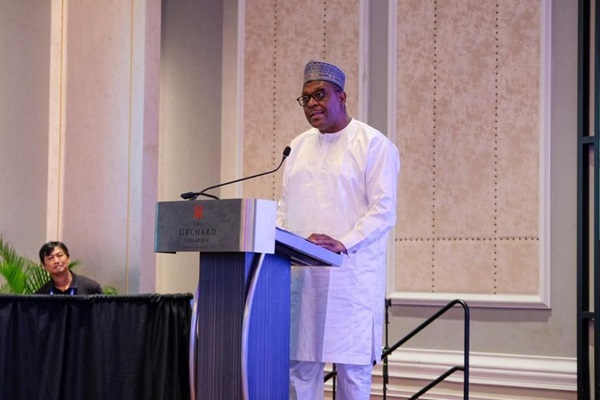
The Federal Government has toured the critical role of public-private partnerships (PPPs) in transforming Nigeria’s healthcare landscape.
The Minister of Health and Social Welfare, Prof. Muhammad Pate made this statement on Tuesday in Abuja at a high-level policy dialogue focused on sustainable health system reforms in Nigeria, themed “Private Sector Support for SWAP (sector-wide approach) in Healthcare.”
Science Nigeria reports that the dialogue, organised by the Healthcare Federation of Nigeria (HFN)—a coalition of private sector stakeholders—aims to address the multifaceted challenges plaguing Nigeria’s healthcare system.
HFN stated that the discussion would incorporate international expertise and best practices to support the government’s reform agenda, promising productive conversations and collaborations to drive the sector towards achieving Universal Health Coverage (UHC) and improving health for all Nigerians.
“To achieve the health sector we desire, public-private partnerships are a no-brainer,” Pate asserted. He highlighted the growing recognition of the challenges facing Nigeria’s healthcare system, including inadequate infrastructure, limited access to essential services and a shortage of healthcare professionals.
He underscored that a collaborative approach, harnessing the strengths of both the public and private sectors, is essential for effectively addressing these issues.
“Public-private partnerships are not just beneficial; they are necessary for driving innovation and ensuring sustainable access to quality healthcare for all Nigerians,” the minister stated.
He pointed out that successful PPPs could lead to improved health outcomes, reduced costs and enhanced service delivery. He highlighted several case studies where PPPs have significantly improved healthcare access and quality.
Pate called on private sector players to actively engage in partnerships with government agencies, stating, “Together, we can leverage our respective strengths to build a resilient healthcare system that meets the needs of our people.” He discussed the critical issues surrounding Nigeria’s mixed health system and the integral roles of both the public and private sectors in addressing health challenges.
The minister shared his background as a public health physician, noting that his experience attending business school underscored the importance of cross-sector knowledge in optimising health outcomes. Encouraging dialogue, he urged interaction among private sector leaders, health commissioners and legislative members, reflecting his belief in collective problem-solving.
He raised important questions about the role of public finance in health, asserting that health is both a right and a public good, which justifies government investment. He pointed out that a healthy population is vital for economic growth and human capital development.
Discussing inherent market failures in healthcare, he explained the need for government intervention, particularly for vulnerable populations. He highlighted the significant disparity in per capita spending on health between Nigeria and countries like the UK, questioning how to navigate this challenge within a mixed health system.
He posed critical questions about the private sector’s role in this system, indicating that collaboration is essential to bridge gaps in health financing and service delivery. He advocated for a synergistic approach to enhance healthcare delivery through collaboration between public and private sectors.
Pate stressed the necessity for a transformative approach to Nigeria’s health sector, particularly regarding the healthcare value chain. “The first element is the healthcare value chain, which begins in the diagnostic sector. We are entrepreneurial people, but we don’t produce,” he stated.
He questioned why Lassa fever test kits must come from elsewhere, highlighting that there are areas where Nigeria should contribute, noting the economic value of local production. “There are private sector actors willing to invest to provide services for those who can afford them; can we not attract them?” he asked.
The minister also addressed the need for health security, emphasizing the government’s mandate to intervene. He questioned how many private sector entities have their own preparedness plans for infectious diseases, collectively stressing the potential for the health sector to drive economic growth and the need for collaboration between public and private entities to enhance health outcomes and preparedness in Nigeria.
He explained, “The sector-wide approach aims to unify efforts around one plan, one budget, one conversation, and one source of truth, including data, instead of allowing each entity to justify its position independently.” He highlighted the importance of consolidating efforts within the health sector to enhance efficiency, transparency, and accountability, ultimately ensuring that resources are directed towards the actual needs of the population, such as antenatal care and vaccinations.
Recall that stakeholders at the event emphasized that as Nigeria continues to grapple with various health challenges, enhanced collaboration between the public and private sectors may pave the way for innovative solutions and ultimately improve healthcare delivery across the nation.
They urged the government to create a more enabling environment for such collaborations, including streamlined regulations and incentives for private sector involvement.

